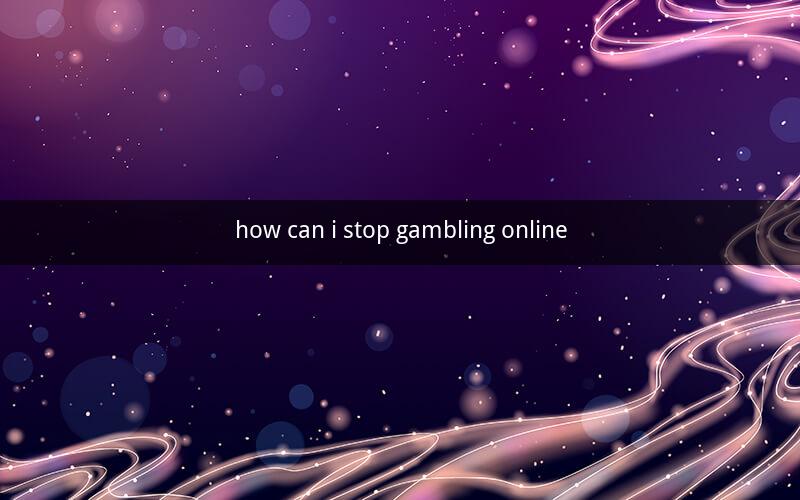
Table of Contents
1. Understanding Online Gambling
2. The Psychological Aspect of Online Gambling
3. Identifying Problem Gambling
4. Strategies to Stop Online Gambling
5. Support Systems and Resources
6. Self-Exclusion Programs
7. Setting Financial Limits
8. Time Management Techniques
9. Alternative Activities
10. Seeking Professional Help
1. Understanding Online Gambling
Online gambling has become increasingly popular in recent years, offering convenience and accessibility to a wide range of individuals. It encompasses various forms, including poker, slots, sports betting, and casino games. However, for some, it can lead to addiction and financial problems.
2. The Psychological Aspect of Online Gambling
The allure of online gambling lies in the psychological aspects that make it addictive. These include the thrill of winning, the excitement of playing, and the availability of instant gratification. Understanding these factors is crucial in addressing the issue of online gambling addiction.
3. Identifying Problem Gambling
Recognizing the signs of problem gambling is the first step in overcoming it. Common indicators include hiding gambling activities, spending more time and money on gambling, neglecting responsibilities, and experiencing emotional distress due to gambling.
4. Strategies to Stop Online Gambling
To stop online gambling, it is essential to adopt effective strategies. Here are some approaches:
- Self-Reflection: Reflect on the reasons behind your gambling habit and identify the triggers that lead to relapse.
- Set Clear Goals: Establish specific, achievable goals to help you overcome your addiction.
- Seek Support: Surround yourself with supportive friends, family, or professionals who can provide guidance and encouragement.
- Create a Safe Environment: Remove temptation by deleting gambling apps, blocking websites, and limiting access to credit cards and online payment methods.
5. Support Systems and Resources
Seeking support from support systems and resources is crucial in overcoming online gambling addiction. These may include:
- Gamblers Anonymous: A worldwide fellowship of individuals who share their experience, strength, and hope with each other.
- Counseling Services: Professional counseling can provide personalized support and coping strategies.
- Support Groups: Joining support groups can offer a sense of community and shared experiences.
6. Self-Exclusion Programs
Self-exclusion programs are designed to help individuals who have a gambling problem by restricting their access to gambling facilities and websites. These programs can be effective in preventing relapse and maintaining sobriety.
7. Setting Financial Limits
Setting financial limits can help control spending and prevent financial ruin. Consider the following steps:
- Budgeting: Create a budget to track your expenses and allocate funds for essential needs.
- Limit Deposits: Set a maximum deposit limit for online gambling accounts.
- Use Prepaid Cards: Use prepaid cards to fund your gambling activities, limiting the amount you can spend.
8. Time Management Techniques
Managing your time effectively can help reduce the temptation to gamble. Try the following techniques:
- Schedule Activities: Plan your day with a variety of activities to keep you engaged and occupied.
- Limit Screen Time: Set a specific time limit for using electronic devices, including gambling websites.
- Stay Active: Engage in physical activities to distract yourself from the urge to gamble.
9. Alternative Activities
Finding alternative activities can help fill the void left by gambling. Consider the following options:
- Hobbies: Pick up a new hobby or revisit an old one.
- Exercise: Engage in physical activities to improve your mental and emotional well-being.
- Socialize: Spend time with friends and family to foster a sense of connection and support.
10. Seeking Professional Help
If you find it challenging to overcome your online gambling addiction on your own, seeking professional help is essential. A therapist or counselor can provide personalized strategies and support tailored to your specific needs.
Frequently Asked Questions
1. What are the signs of problem gambling?
- Signs include hiding gambling activities, spending more time and money on gambling, neglecting responsibilities, and experiencing emotional distress due to gambling.
2. How can I identify if I have a gambling problem?
- Reflect on your gambling habits and assess if they are causing negative consequences in your life.
3. What are some effective strategies to stop online gambling?
- Strategies include self-reflection, setting clear goals, seeking support, creating a safe environment, and adopting time management techniques.
4. How can I find a support group for problem gambling?
- Search online for local support groups or contact Gamblers Anonymous for guidance.
5. What is a self-exclusion program?
- A self-exclusion program is designed to help individuals with gambling problems by restricting their access to gambling facilities and websites.
6. How can I set financial limits to control my gambling spending?
- Create a budget, limit deposits, and use prepaid cards to fund your gambling activities.
7. What are some alternative activities to fill the void left by gambling?
- Consider hobbies, exercise, and socializing with friends and family.
8. How can I find a therapist or counselor to help me overcome my gambling addiction?
- Contact your local mental health provider or search online for therapists specializing in problem gambling.
9. Is online gambling addictive?
- Yes, online gambling can be addictive due to its psychological aspects and accessibility.
10. How long does it take to overcome a gambling addiction?
- The duration of recovery varies for each individual, but with consistent effort and support, it is possible to overcome the addiction.